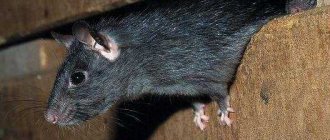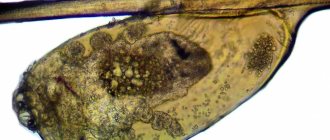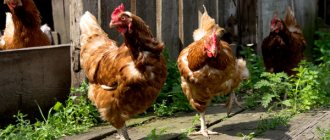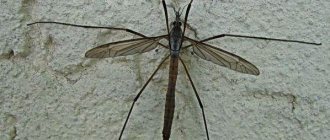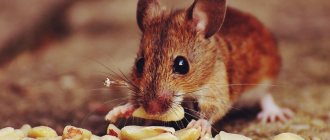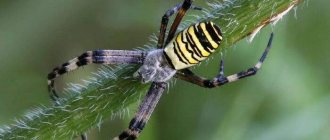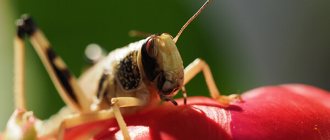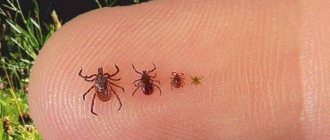Mice are not the most common pets. However, these small rodents are quite unpretentious, easily tamed and can easily be pets. The main thing is not to let them get too close to the wires.
Mice prefer soft bedding, which in nature is replaced by grass. If the litter is infested with parasites, the mouse leaves and looks for another nest. Therefore, if a house mouse does not want to sit in a cage, it is necessary to carry out a total cleaning.
The diet of mice is quite simple: almost any plant seeds (sunflower, cereals, rice, and so on). An indicator of satiety is the accumulation of reserves, which also occurs in natural conditions when there is a sufficient amount of food. Water is also important for mice, but you only need a little of it - about 3 ml per day. It is important to ensure that there is constant water, otherwise the mouse may die quickly from dehydration.
Mice reproduce well in captivity. They need warmth, humidity and food, then the breeding season may not stop. This must be taken into account when keeping mice of different sexes. In a year, one female is capable of giving birth to about 120. Blind and naked mice become covered with hair after 10 days, by the fourteenth they open their eyes, and on the twenty-first day it is quite possible to find a litter of mice running around the rooms in search of a personal nest. In nature, despite their high fertility, mice do not breed too much, as they become prey for predators, but in residential buildings this can become a problem.
Life expectancy of mice at home
At home, they usually keep a decorative breed of mouse. These, as a rule, live longer than wild ones. With the proper quality of life, they easily live up to 2-3 years, and some even cross this line and reach the age of 5 years.
The lifespan of mice varies depending on a number of factors
Pets live longer for a number of reasons:
- Living conditions. Mice are kept in cages that are always warm. In addition, caring owners always clean the inside and keep their pet’s home clean, thereby minimizing the development of various diseases.
- Nutrition. Pets do not have to find their own food, as they receive it regularly. Accordingly, they do not have such a condition as starvation. The food given to rodents contains the nutrients they need.
- No predators. Mice are easy prey for many predators. At home, they are completely safe and are not even exposed to stress, which can be detrimental to them.
Mice can get along well with people
Most often, mice at home die from old age, disease or genetic disorders. Otherwise, they can be considered quite tenacious.
Diseases
As a rule, the cause of the disease is improper care or genetic predisposition. If there is any suspicious change in your rodent's behavior, you should contact your veterinarian. Obvious signs of illness:
- Changes in the shape of teeth, their unequal length.
- Poor appetite.
- Low activity.
- Eye or nasal discharge.
- Diarrhea.
- Weight loss.
- Change in skin texture.
If the mouse is sick, immediately show it to the veterinarian.
If such signs are present, you must immediately take the animal to the hospital, otherwise it may die.
Lifespan of mice in nature
How long do ferrets live at home?
In general, the age of mice in nature rarely exceeds 14 months, but more often it is about 10 months, which is more than 2 times less than that of domestic mice. This is influenced by a number of features of living in the wild:
- Predators. The big problem with mice is that they can be eaten at any age. They are hunted by snakes, birds, foxes, martens and other enemies.
- Food. In the summer, this problem rarely arises, but many animals do not survive the winter without food. Accordingly, the lifespan of mice is limited to the season when they can feed.
- Climate. Mice are not very picky about their living conditions, but despite this they do not tolerate extreme heat, severe frosts, or temperature fluctuations.
- People. On some level, it is also fashionable to call them enemies of rodents. After all, the latter constantly invade their home in order to find food or shelter. The person, in turn, sets traps, scatters poison and tries in every possible way to get rid of uninvited guests.
Rodents are able to survive in any conditions
It turns out that mice in nature often die from exposure to a number of factors, rather than from their own death.
Interesting Facts
Scientists are constantly working to increase the life expectancy of rodents. Why are they doing that? There is only one goal: to understand the mechanism of aging and find a cure for eternal youth - man has always tried to cheat death in order to live forever! Perhaps getting long-lived mice is the first step towards your cherished dream.
So, in 2005, an unprecedented experiment was conducted at one of the research institutes, which ended in setting a record: their experimental pet managed to live for almost five years! Scientists are in no hurry to share the secrets of their stunning success, and all developments are kept in the strictest confidence.
In turn, Japanese scientists have proven that mice born from two mothers and without the father’s genes in their genetic code live a quarter longer than pets conceived in the traditional way. The experiment not only proves that reproduction is possible without the participation of males, but also makes it possible to see firsthand that male genes accelerate the aging process of the body.
There is a downside to this study:
- the experimental animals did not reach normal sizes - they were significantly smaller than ordinary pets;
- but their immune system was more active, and the animals were in better health.
How long can they live without food and water?
Food is an integral part of the life of any living organism, and rodents are no exception. In general, they rarely go without food, as they feed on everything. During the cold season, mice try to get closer to people, where they can always find something. If the animal does not have this opportunity, then its average lifespan will be 10 days.
How long do red-eared turtles live at home?
Rodents consume water not only directly from reservoirs, but also from succulent herbaceous plants. Accordingly, its shortage occurs extremely rarely. But if you leave a mouse locked in a cage without water, it will not live more than 3 days.
For your information! Babies cannot drink on their own for the first 3 weeks of their lives; they depend on their mother. This means that one mouse will not live more than half a day.
Influence of nutrition
It is recommended to give your pet a ready-made, balanced food. Since per day the mouse must eat:
- greens – 6 g;
- grain – 12 g;
- succulent food – 3 g;
- cereals – 3 g;
- flour, including bone flour – 0.3 g;
- fish oil – 0.1 g;
- milk – 10 g;
- salt – 0.1 g;
- bread – 1.8 g;
- feed yeast – 0.2 g.
Nuts and seeds are given periodically. Abuse of these products leads to obesity.
It is much more dangerous for an animal to be without water. In the absence of liquid in the wild, the mouse eats the succulent parts of the plant. A pet locked in a cage, deprived of water, finds itself in much worse conditions. How long an animal can survive without fluid is also interesting. A mouse lives without food and water for no more than 3 days.
How does life expectancy depend on breed?
What do mice eat in nature and at home - list of products
How long mice live is also affected by their species. The most common of them are homemade: decorative and white. They are worth considering in more detail. As for other popular breeds:
- Vulcanovaya. They can be kept at home. It is a fairly large specimen, the body length of which can reach 15 cm and weight 60 grams. With proper care, it lives up to 5 years.
- Zebra. It got its name from its striped coat. This breed is not known for its sociability and practically does not go near people, so they can be classified as wild. The lifespan of such a mouse is about 4 years, but only under the condition that a person can still tame it. In nature, they are unlikely to be able to last that long.
- Baby. The smallest type. They treat people with caution and are very timid. At the same time, if you managed to get this rodent, it is not difficult to establish contact with it. Their lifespan is 3 years.
- Fazza. A rodent that has no guard hair, that is, almost bald. They get along with people better than others - they love to play and are very friendly. However, due to the lack of hair, they have a specific smell, so they require special care. They live for about 2 years.
- Satin. It is very rare and famous for its color. He is good friends with people and lives for about 2 years.
- Gerbil. Another species that is often kept at home. They are sociable and, importantly, have virtually no foreign odor. Sandstone are long-lived and can please their owner for about 5 years.
- Voles. Miniature mice living in meadows, dense bushes, and vegetable gardens. People generally classify them as pests because they can destroy crops. If nothing threatens the field rodent, it can live up to 7 years.
Vole at home
Important! For a pet to live a full life, it needs appropriate conditions.
How long do white mice live?
White mice are more common than others and are often sold in pet stores. They make good contact with people. This species was bred in laboratory conditions and is a domesticated descendant of the house mouse. This breed is used for all kinds of research.
If this species is kept in good conditions and high-quality food is selected for it, it can live for 3 years. However, this figure is often higher. The maximum recorded age for how long white mice live is 7 years.
White mouse (albino)
What does it eat?
Domestic mice are rodents, and the basis of their diet should be grains (wheat, millet, barley, rye, etc.). You can also give fruits, berries, vegetables and seeds of wild plants. You can offer your pets sunflower seeds and crackers as treats, but only in small quantities.
Article on the topic: Broad-spectrum antibiotics for cats: which one to choose?
Wheat
When thinking through the diet, it is necessary to take into account that mice need to be given additional vitamin and mineral supplements.
You can also feed your pet ready-made food, which contains all the necessary ingredients for a balanced diet.
It is necessary to provide the rodent with branches of garden trees or birch trees for grinding down teeth. Even if you give your pet succulent food, make sure that there is always clean drinking water in the drinking bowl. The domestic white mouse especially needs liquid: even one day spent without water will seriously affect the pet’s well-being.
How long do decorative mice live?
The decorative appearance has thick, monochromatic wool. There are black, gray, sandy and brown rodents. They are sold en masse in pet stores. The size of such a rodent ranges from 7-12 cm, excluding the tail, and the weight is about 60 grams. On average, they live about 2.5 years.
It is important to consider that these rodents are school animals, so they get along better in company, and accordingly, how long a decorative mouse will live will depend on this. It is worth keeping individuals of the same sex, as they are capable of breeding all year round.
How to extend the lifespan of mice
First of all, life expectancy depends on the conditions in which the rodent will live. It requires comfort, namely:
- Space. The mouse will do well in a spacious cage with room to play. He will also need a house. Rodents love to hide and sleep in secluded places. To add variety to your pet’s days, it’s worth installing a wheel, shelves, a ladder, and a rope in the cage. Such accessories will help him do the necessary physical activity and entertain himself.
- Litter. For such animals, sand and cotton wool are unacceptable. In the first case, there is a risk of developing lice, and in the second, there is discomfort in the form of an unpleasant odor and tangled paws. It is optimal to use sawdust, hay, shavings, and peat chips. The layer must be at least 0.5 cm.
- Climate. Do not leave the animal in direct sunlight or in a draft. They don't tolerate it well and may even die. You also need to make sure that the mouse is not exposed to cold or heat for a long time.
- Walks. No matter how spacious the cage is, it is still cramped for the rodent. If possible, you should let the mouse run around the house. However, you need to make sure in advance that nothing will harm him and that there are no places in the room where he could hide.
A cage equipped with everything you need
For your information! The rodent is not a friend to other pets, but rather prey for many of them, so the cage must be kept out of reach.
Nicknames for pets
The new owner has the opportunity to independently come up with a nickname for his animal.
Give the mice nicknames
Below are examples of common mouse names:
For girls: Anfiska, Alsha, Arani, Byuka, Buzka, Viva, Vetta, Zhuli, Zhikharka, Zhuska, Shuga, Shulya, Shanti.
For boys: Arik, Asi, Azar, Ariy, Bely, Stench, Stu, Styopa, Ekor, Eric, Pablo, Ping, Peck.
A mouse in the house as a pet will bring a lot of pleasure to the owner and will look cute, but it is important to be able to properly care for it and provide timely help if necessary.
How does feeding and care affect
Balanced nutrition and care for your pet are the basis for its full and long life. If one of these factors is disrupted, the mouse may get sick.
As for caring for a rodent, no special skills are needed for this. The main thing is to clean the cage and change the bedding in a timely manner. It is optimal to do this 2-3 times a week, or more often. You can wash the cage with regular soapy water. It is especially convenient to clean structures with a retractable tray. Thanks to this simple rule, not only will the animal be healthy, but there will be no foreign smell in the house.
Under natural conditions, mice are omnivores, but it is worth remembering that they live an order of magnitude shorter. In order for a pet to feel comfortable and be able to please for many years, it needs to eat properly. Typically, ready-made mixtures in stores contain all the necessary substances in the right quantities. However, it won’t hurt to add wet food to dry food:
- apples;
- fresh grass;
- sprouted grain;
- green bean.
If possible, it is useful to add butterflies, flies and cockroaches to the diet.
Decorative mouse
Mice at home and in nature survive differently, which means their life expectancy is different. Wild representatives exist on average for a year, and those that have settled in humans last for an average of three years. To prolong the life of your pet, it is important to feed it properly, care for its cage and provide optimal living conditions.
harmful animal
Small animals cause constant damage to humans. Large populations can greatly spoil food supplies in cellars and warehouses.
But every single rodent also brings trouble to humans. Once settled in a home, the mouse is ready to taste anything. It spoils not only supplies, but also furniture, books, and wallpaper.
Animals carry dangerous infections on their paws and skin. In addition, they leave their feces and urine in the house.
The mouse's desire to live together forces people to come up with ways to get rid of these neighbors. Only the most clumsy animals fall into traps.
To reliably rid the house of the entire community, it is better to use the services of professionals. Special products will help you forget about mice forever.

